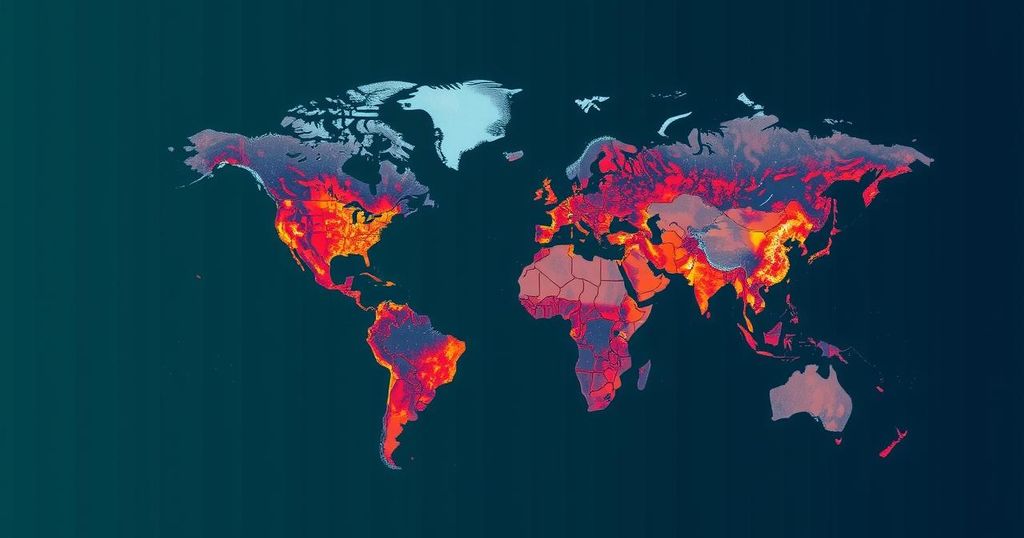Funding Gap Endangers Climate Talks as Global Temperature Rises Towards Catastrophic Levels
A substantial funding gap of over $61 million is threatening global climate negotiations led by the UNFCCC, as the world faces alarming forecasts of over 3 degrees Celsius warming by the century’s end. The United States and China, the largest economies and emitters, have yet to fulfill pledged contributions. The shortfall has forced the organization to limit operations and jeopardizes crucial climate discussions, even as urgent calls for emissions reductions intensify ahead of the COP29 summit.
A significant funding shortfall poses a critical threat to global climate negotiations at a time when rising temperatures are anticipated to exceed 3 degrees Celsius by the century’s end. The United Nations Framework Convention on Climate Change (UNFCCC), responsible for coordinating annual climate discussions among nearly 200 nations, faces a shortfall of approximately $61.53 million for 2024, as reported by Reuters. This gap represents nearly half of the organization’s required budget to facilitate international efforts aimed at mitigating climate change and holding nations accountable. Despite member countries having ratified the budget and committed respective contributions, key financial contributions remain unfulfilled, particularly from the United States and China, the two largest economies and greenhouse gas emitters. The United States currently owes $7.9 million for the core budget while China has a deficit of $6.1 million. Both countries have expressed intentions to fulfill their financial obligations in the current year; however, specific timelines remain unspecified. The funding deficit has already prompted the UNFCCC to scale back operational activities and cancel vital regional climate summits, which previously generated significant investment pledges for renewable energy and climate initiatives. The current financial challenges threaten not only the UNFCCC’s operational capabilities but also essential climate negotiations that involve trillions of dollars of climate finance necessary for effective global climatic management. Compounding these issues, a new report from the UN highlights the urgent necessity for immediate emissions reductions to prevent catastrophic warming. Without concerted global action, the target of limiting temperature rise to 1.5 degrees Celsius may soon be unattainable, with the world currently facing a rise of about 1.3 degrees Celsius since pre-industrial times. The report indicates a need for a collective yearly reduction of greenhouse gas emissions by at least 42% by 2030 and a target of 57% by 2035 to stave off serious climate consequences. Commencing COP29 in Baku, Azerbaijan, will be critically influential in shaping nations’ emissions-reduction strategies as global leaders work to salvage the prospects of the Paris Agreement. Inger Andersen, executive director of the United Nations Environment Programme, has urged participants to maximize their efforts in Baku to maintain the possibility of adhering to the 1.5 degrees Celsius target and to prevent further detrimental environmental impacts.
The article addresses the urgent financial challenges confronting the UNFCCC, which impacts global climate negotiations. With the anticipated increase in global temperatures jeopardizing future environmental conditions, the funding crisis underscores the necessity for developed nations to fulfill their financial commitments, particularly those from fossil-fuel-intensive economies such as the United States and China. As global emissions continue to rise, the consequences of inaction are becoming increasingly severe, necessitating a coordinated response from all nations to avert potentially catastrophic climate scenarios.
In conclusion, the severe funding gap faced by the UNFCCC threatens the effectiveness of international climate negotiations at a pivotal moment when global temperatures are predicted to escalate dangerously. The failure to secure essential financial contributions from key nations jeopardizes the success of forthcoming climate initiatives and negotiations, as underscored by recent reports emphasizing the imperative of immediate emissions reductions. As global leaders convene at COP29, the urgency for substantial commitments to climate finance and action is more critical than ever to secure a sustainable future.
Original Source: www.asiafinancial.com




Post Comment